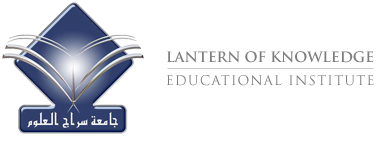Mathematics
Mathematics contributes to the Lantern of Knowledge Secondary school curriculum by developing pupils’ abilities to calculate; to reason logically, algebraically, and geometrically; to solve problems and to handle data. Mathematics is important for pupils in many other areas of study, particularly Science and Technology. It is also important in everyday living, in many forms of employment, and in public decision-making. Mathematics presents frequent opportunities for creativity, and can stimulate moments of pleasure and wonder when a problem is solved for the first time, or a more elegant solution to a problem is discovered, or when hidden connections suddenly manifest.
It enables pupils to build a secure framework of mathematical reasoning, which they can use and apply with confidence. The power of mathematical reasoning lies in its use of precise and concise forms of language, symbolism and representation to reveal and explore general relationships. These mathematical forms are widely used for modelling situations; a trend accelerated by computational technologies.
The subject transcends cultural boundaries and its importance is universally recognized. Mathematics helps us to understand and change the World.
The School will provide for all students mathematical experiences through moral, cultural and social contexts – irrespective of their background, ability, or race. These experiences should help the students to acquire the mathematical skills and understanding they need as they journey through life.
In addition to ongoing assessment, pupils are assessed at the end of every half-term and will sit two internal exams during the year. Pupils will begin GCSE in year 10 and will take their final linear exam at the end of year 11.
The school hopes that students will come to appreciate that whilst being an important tool in other subjects, Mathematics is a subject in its own right, and that there is a sense of awe and wonder to behold within its boundaries.
At Lantern of Knowledge our aim is that all children should reach their full potential as mathematicians. In order to achieve this, our aims are:
- To set challenging targets with high expectations for all pupils.
- To offer a variety of approaches to teaching and learning to engage and motivate pupils and demand their active participation.
- To smooth the transition for pupils between Key Stages and ensure progression in teaching and learning throughout their time at the Lantern of Knowledge Boys School.
- To explore enrichment opportunities outside the curriculum to enhance pupils’ enjoyment of mathematics.
OBJECTIVES
At the end of his/her mathematical education in this school, each pupil will be able:
- To perform basic numeracy skills
- To perform the basic mathematical skills needed in his/her chosen career or for entry to higher or further mathematical education
- To understand the mathematics likely to be encountered in daily adult life
- To reason clearly and logically, and to set out a rational argument
- To identify patterns encountered in diverse situations and to extrapolate from these.
- To approach problems systematically, choosing appropriate techniques for their solution.
- To follow logical instructions clearly expressed
- To experience satisfaction in and enjoyment of his/her mathematical achievements.
- To obtain any formal mathematical qualifications needed for his/her chosen career
- To obtain his/her best possible results at KS3, KS4.
In addition, we hope that pupils will acquire the logical abilities characteristic of a mathematician.


